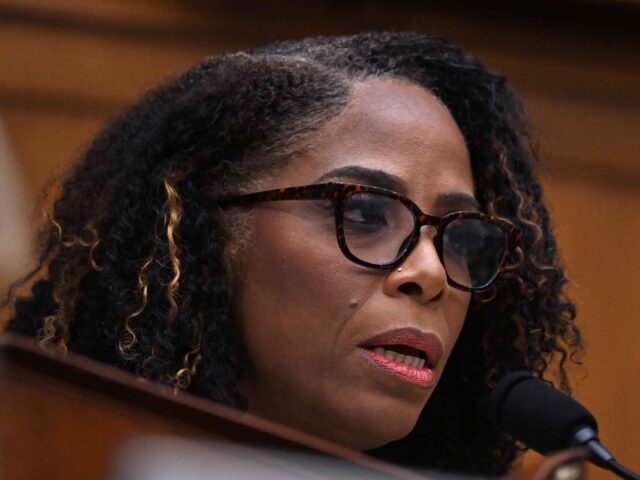Delegate Stacey Plaskett (D-VI) defended censorship on Thursday, arguing that certain views should not enjoy the free speech protections of the First Amendment, which she said was limited by the Supreme Court.
Plaskett, the ranking member of the minority on the House Weaponization Subcommittee, attacked the alleged views of one of the witnesses, Democratic Party presidential candidate Robert F. Kennedy, calling them hateful.
“This is not the free speech that I know of,” she said. She recalled a recent controversy over remarks Kennedy made about the coronavirus affecting some population groups more than others, among other past comments.
Plaskett continued: “Free speech is not an absolute. The Supreme Court has stated that.” (The Court has not generally restricted the content of speech, but a “time, place, and manner” exceptions for the way speech is expressed.)
The ranking member went on to claim that Republicans had not invited Kennedy to testify because he had been censored on social media, but rather to associate themselves with his controversial views. She also claimed that past witnesses interviewed by the committee, such as would-be “disinformation czar” Nina Jancowicz, had been subjected to death threats, and implied that committee chair Rep. Jim Jordan (R-OH) supported those threats.
Republicans were not interested in defending free speech, Plaskett said. Rather, their goal was to force social media companies to promote “any conspiracy theories, no matter how harmful.”
She added: “They want to force social media companies to promote conspiracy theories because they think that’s the only way their candidate can win the 2020 [sic] election.” She said that Congress should be focused instead on issues like inflation.
In response, Kennedy devoted his opening statement to defending his record and noting that he had also been censored for talking about ordinary subjects. The purpose of free speech, he noted, was to protect speech that people did not agree with.
Joel B. Pollak is Senior Editor-at-Large at Breitbart News and the host of Breitbart News Sunday on Sirius XM Patriot on Sunday evenings from 7 p.m. to 10 p.m. ET (4 p.m. to 7 p.m. PT). He is the author of the recent e-book, Neither Free nor Fair: The 2020 U.S. Presidential Election. His recent book, RED NOVEMBER, tells the story of the 2020 Democratic presidential primary from a conservative perspective. He is a winner of the 2018 Robert Novak Journalism Alumni Fellowship. Follow him on Twitter at @joelpollak.
This article has been updated to note that the Supreme Court has not “generally” restricted the content of speech.

COMMENTS
Please let us know if you're having issues with commenting.